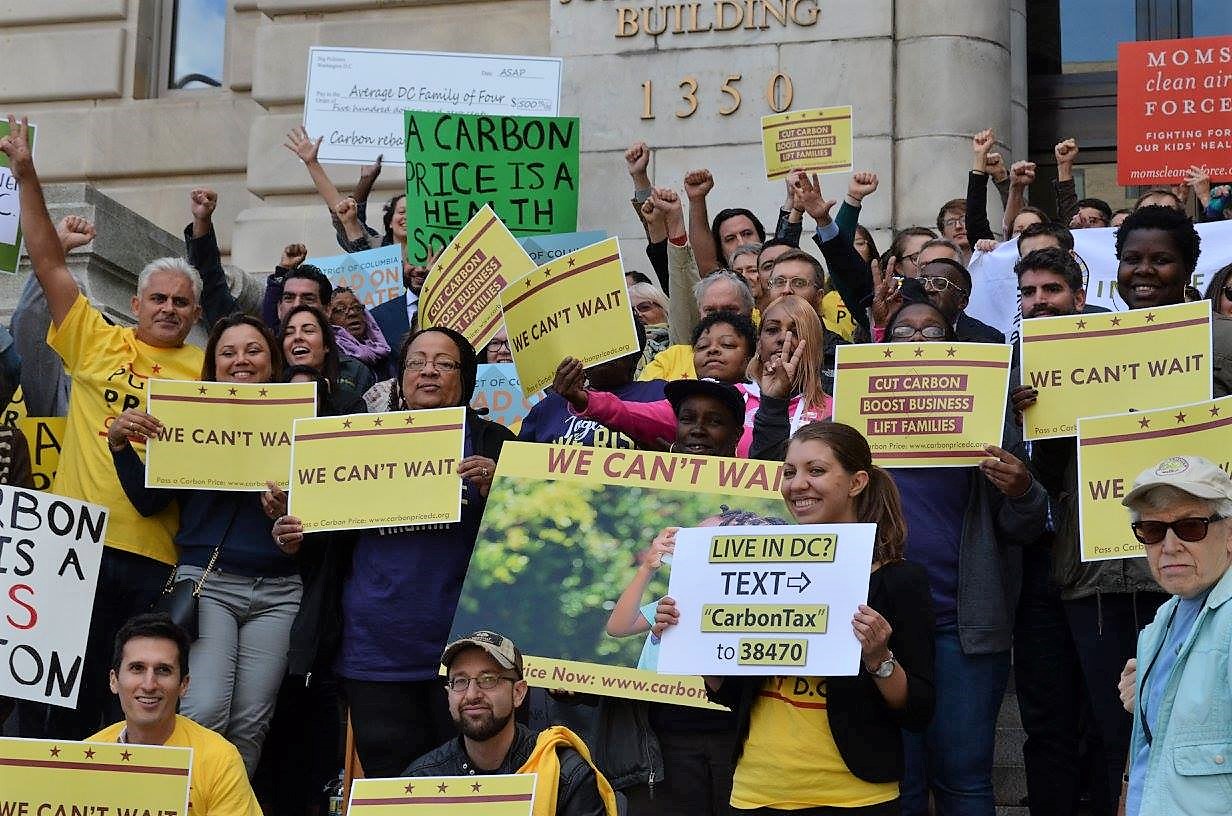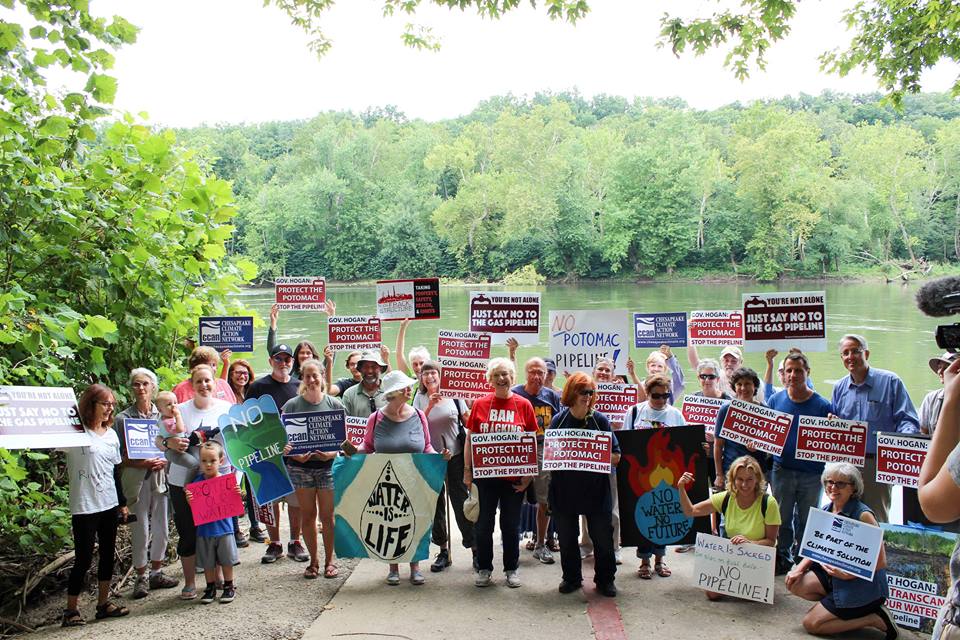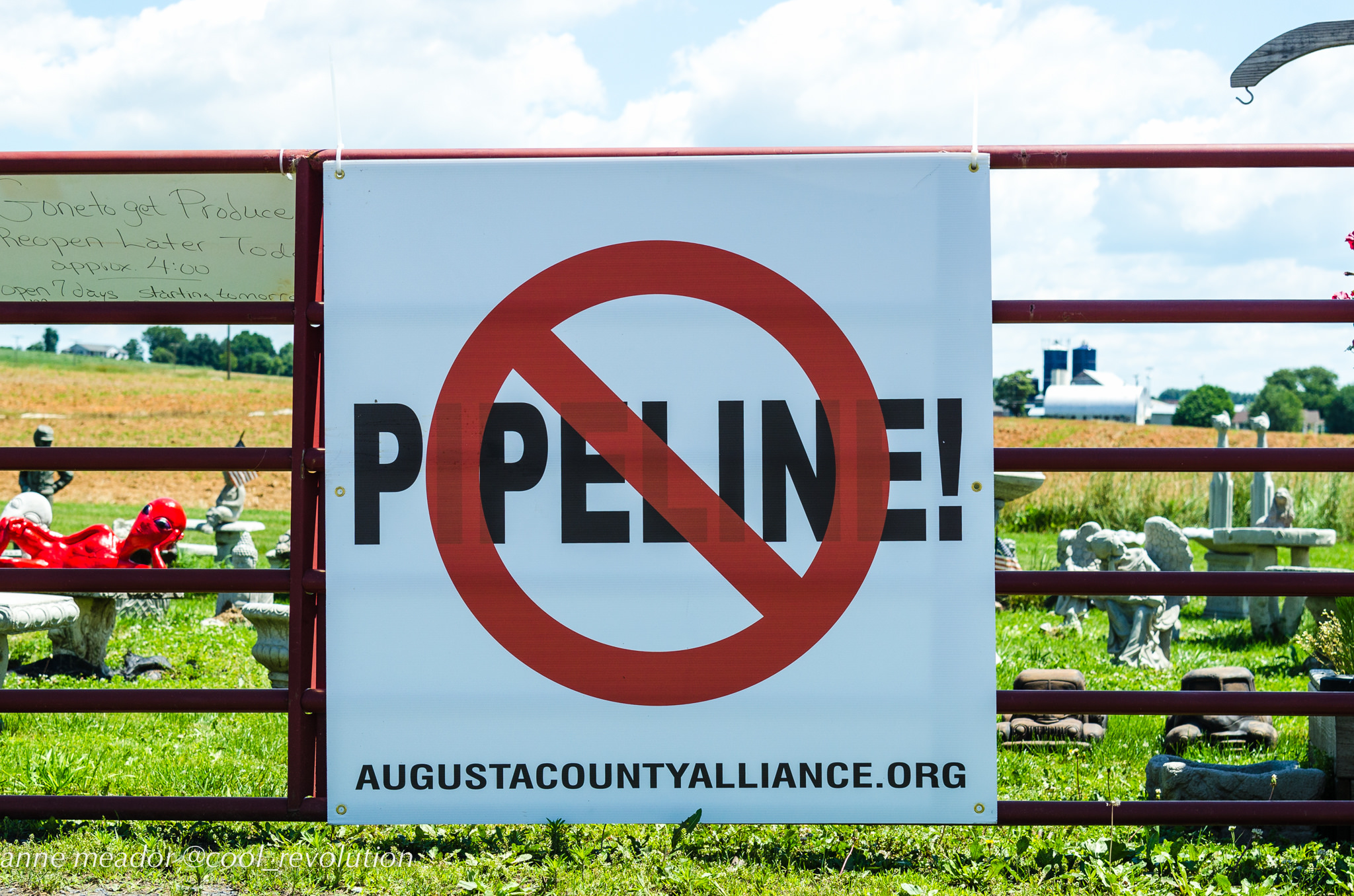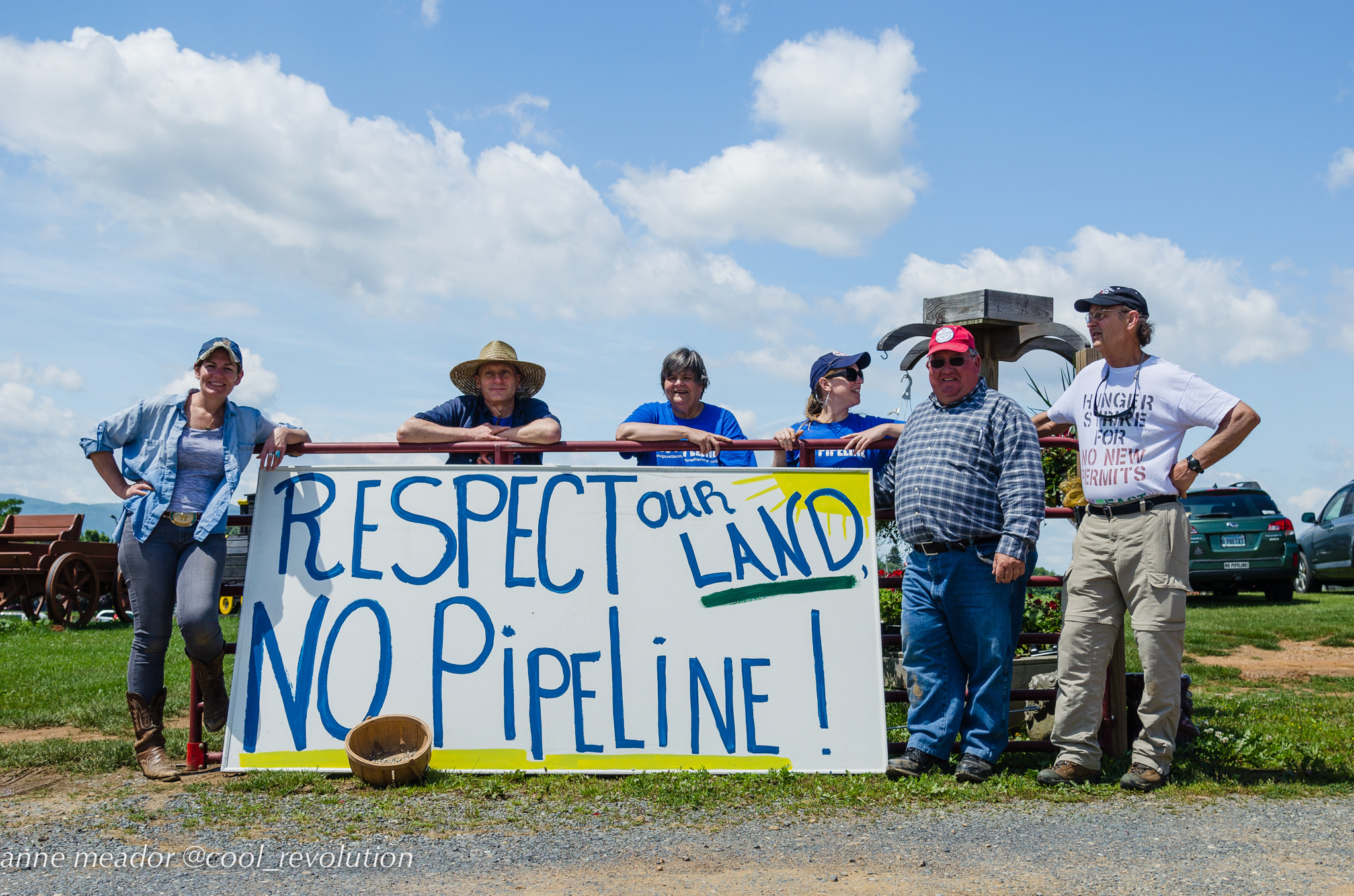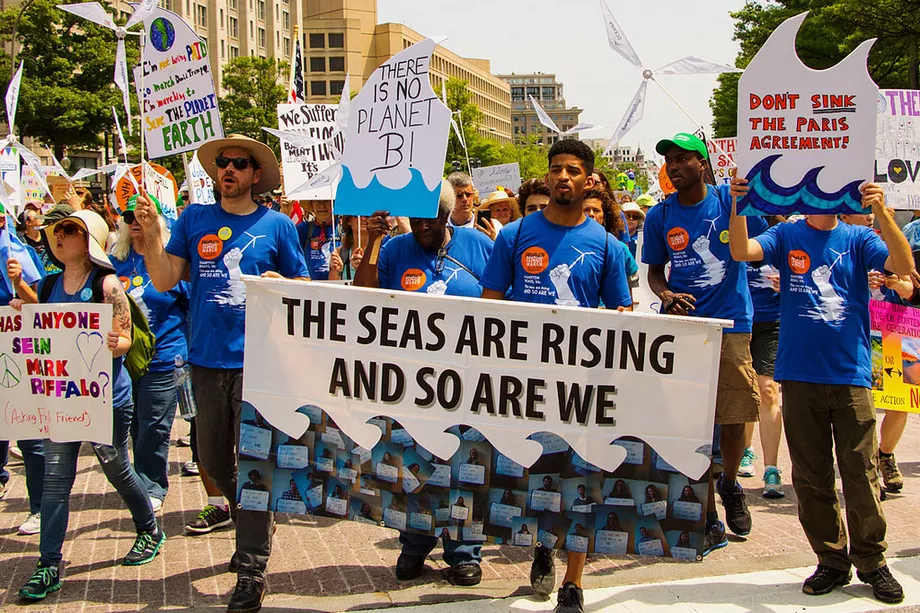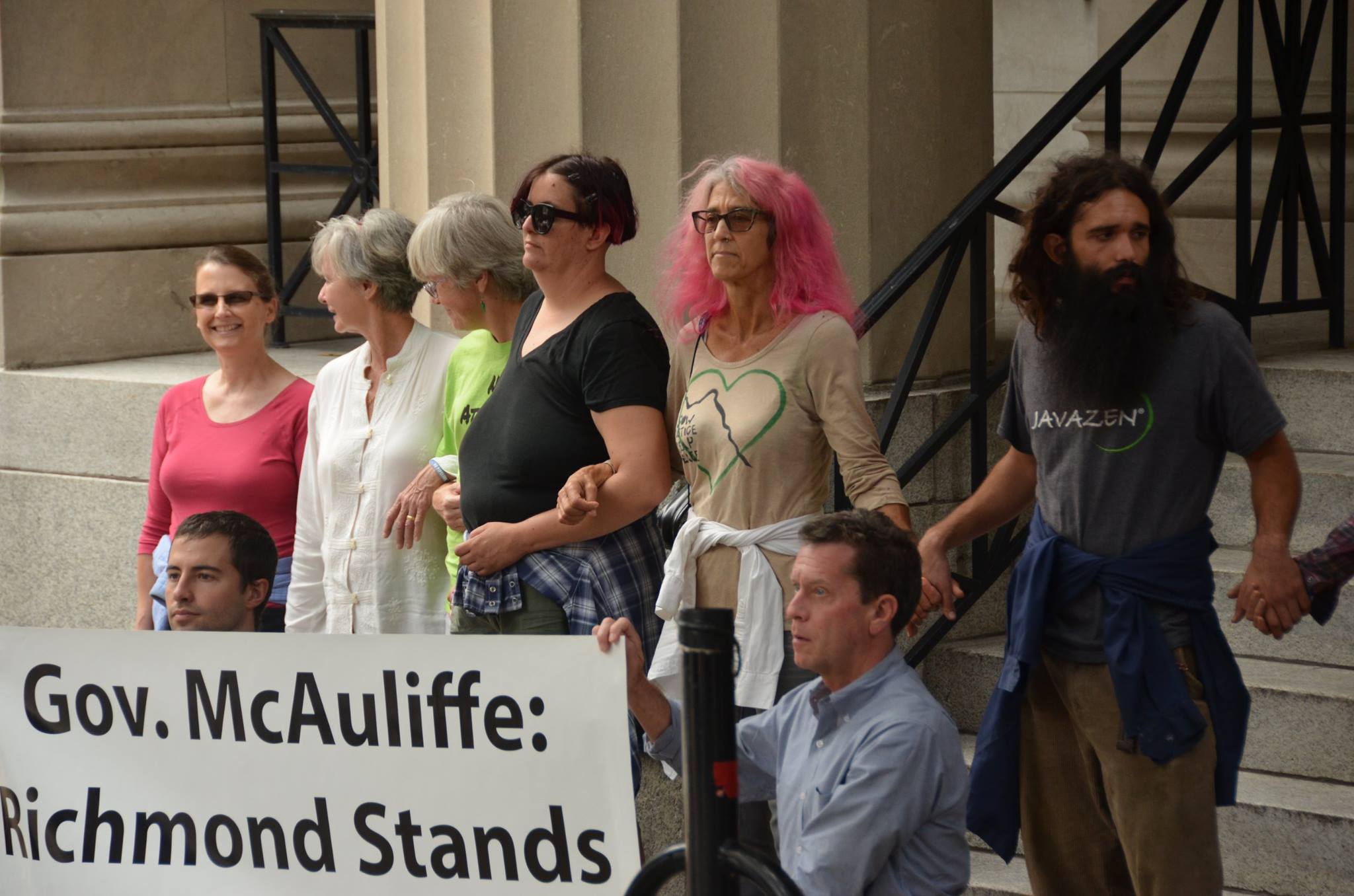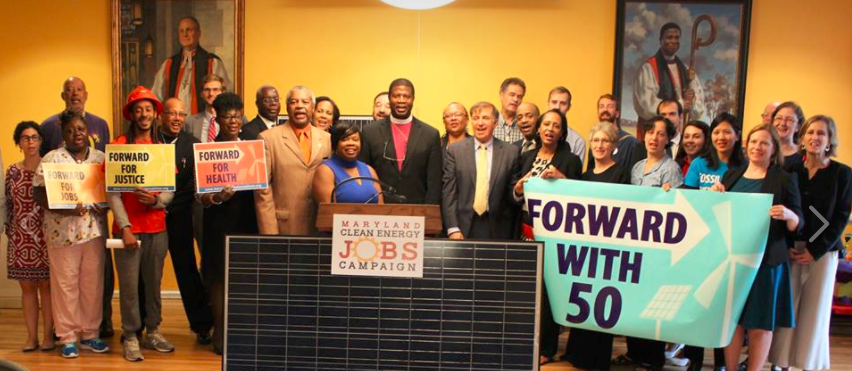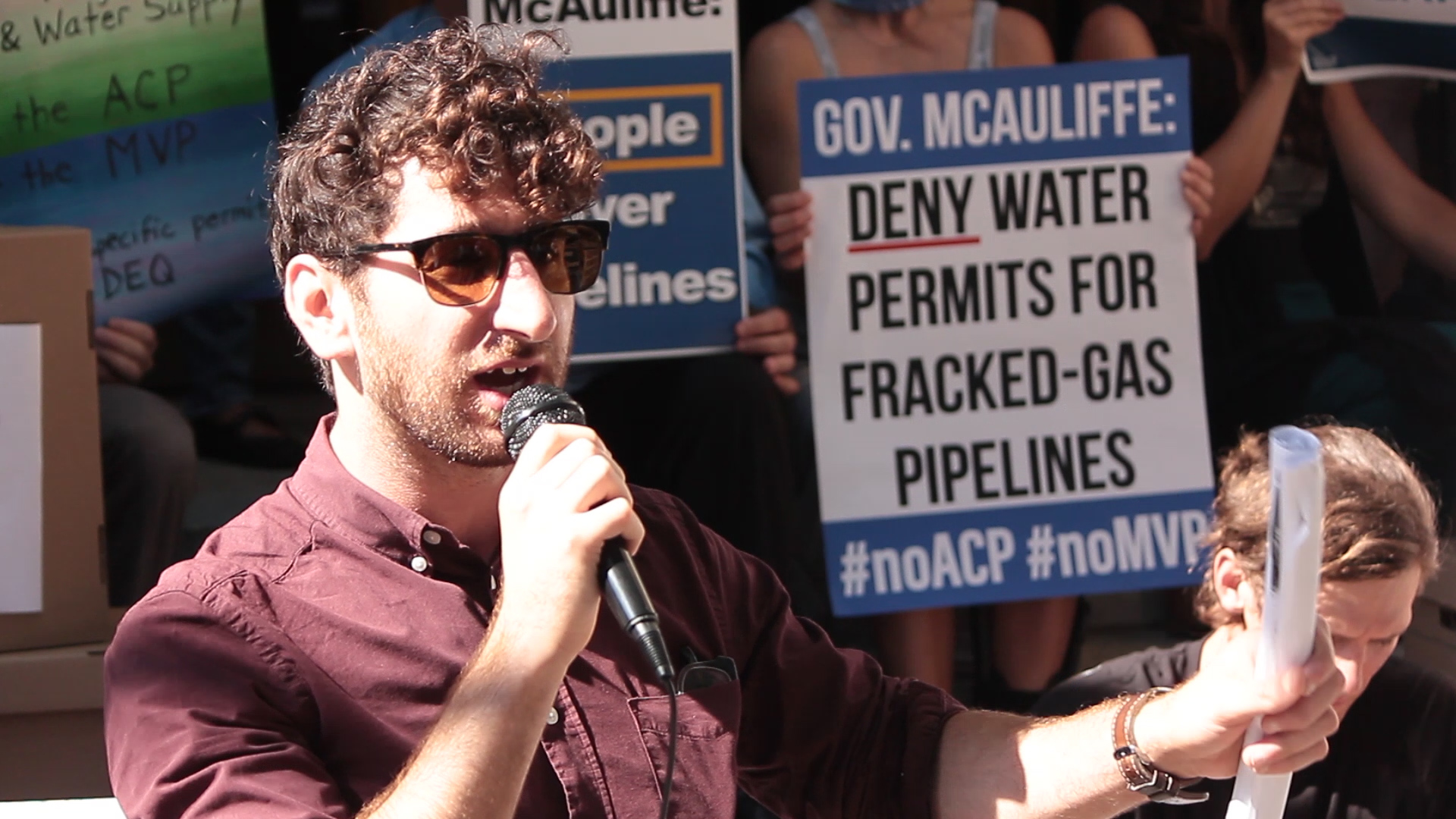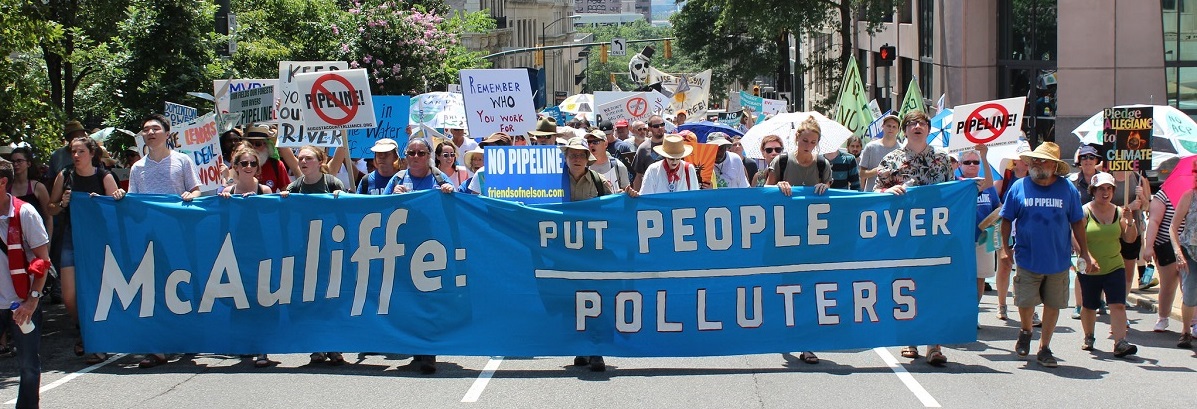After the Hurricanes, D.C. Councilmembers Announce Support for Proposed Carbon Fee-and-Rebate Bill
Advocates expect “Climate & Community Reinvestment Act of D.C.” to be introduced in D.C. Council this year
In the face of recent megastorms and other extreme climate events, an historic effort to address carbon pollution in DC gained new momentum on Wednesday, October 25 as three Councilmembers spoke in favor of the bill before a cheering crowd at the Wilson Building. Advocates for the proposed “Climate & Community Reinvestment Act of D.C.” say the campaign has new momentum heading into the fall and expect a bill to be introduced no later than December with the majority support of the Council.
Councilmember Robert White (At-Large) stated: “I’m glad to support a policy that will address climate change while maintaining robust economic growth in the District. Increasingly extreme climate events harm our businesses and threaten the health of our community. The proposal for a carbon rebate is a common-sense solution that would benefit everyone.”
The proposed “Climate and Community Reinvestment Act” would place a fee on carbon pollution in the District and rebate the large majority of revenue raised back to D.C. residents. According to an economic study by the Center for Climate Strategies, this policy would raise incomes for the majority of D.C. residents and result in stable economic growth with a steady boost in jobs. It would also reduce planet-warming carbon emissions 23 percent by 2032 for electricity, natural gas, and home-heating oil consumed in the District.
Councilmember David Grosso (At-Large) stated: “We are currently at a time when our federal government refuses to do anything to address or acknowledge the real threat that climate change poses. In their absence, D.C. must continue to lead and ensure a bright future for ourselves. Though we’ve made significant progress, there is still more work to be done. That is why the carbon fee proposal is so attractive—it provides another avenue through which we can further reduce our carbon footprint.”
Advocates for the proposed policy say the campaign has new momentum heading into the fall Earlier this month, Mary Cheh, head of the Committee on Transportation & the Environment, told a crowd of Ward 3 Democrats that the proposed carbon fee-and-rebate policy is a “fabulous concept” that will “have to have Council support and the mayor’s support – and [it] will.” The coalition expects a bill to be introduced no later than December with the majority support of the Council.
Reverend Kip Banks, Senior Pastor at East Washington Heights Baptist Church, stated: “For too long, climate polluters have not paid for the damage they’re doing to our communities and to our climate. I’m calling as a faith leader for polluters to take responsibility for the harm that their pollution is causing for ‘the least of these.’ This effort in DC can be a beacon to the rest of our country and a source of hope in our warming world.”
Mike Tidwell, Executive Director at the Chesapeake Climate Action Network, stated: “The urgent nature of our climate crisis requires a significant, immediate response. The movement for strong climate action in D.C. has never been more powerful, and now, with the support of several Councilmembers, we are ready to win. There’s no more time to wait. The time for a progressive and equitable carbon fee-and-rebate policy in D.C. is now.”
Judith Howell, SEIU 32BJ member and security officer in D.C., stated: “Fossil fuel pollution and haphazard development affects the citizens in each and every ward of our city. It is time for those who profit from fossil fuels to pay for the damage to our environment. But we must also ensure the policy would not put the burden on working families. We urge the Council and the Mayor to pass a strong climate rebate bill quickly, for the health and prosperity of our working-class families.”
The “Put A Price On It, D.C.” coalition is comprised of more than 40 climate and justice advocacy organizations, including more than a dozen local businesses.
FOR IMMEDIATE RELEASE: October 25, 2017
CONTACT:
Denise Robbins, Communications Director, Chesapeake Climate Action Network; denise@chesapeakeclimate.org, 608-620-8819
Camila Thorndike, Carbon Pricing Coordinator, Chesapeake Climate Action Network; camila@chesapeakeclimate.org, 541-951-2619.
###

